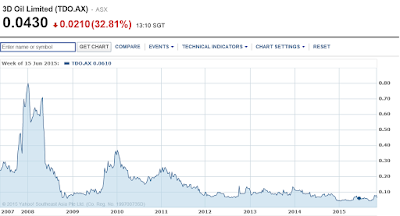Regular readers of this blog will know that I am not exactly a fan of SPACs, especially in the Malaysian context (previous postings
here,
here and
here).
To me it just doesn't make sense to list an empty company, it is already difficult enough for investors to make sense of companies that IPO with a real track record (as a rule of thumb, I insist that companies are listed for at least two years to become "investable", at least to me).
I saw the interest in especially energy SPACs as a sign of a market that has become much too speculative.
The Star published today an
article on its website: "HLIB: Opportunities for investors to lock in long-term returns in three SPACs". Some snippets:
The three listed special-purpose acquisition companies (SPACs) that have yet to make their qualifying acquisition (QA) are trading below their “intrinsic cash values” and hence offer a unique opportunity to investors, according to Hong Leong Investment Bank Research.
“Reach Energy Bhd, Sona Petroleum Bhd and CLIQ Energy Bhd are currently trading at a 13% to 16% discount to their respective intrinsic cash values,” said analyst Jason Tan in a note.
He added that the current discount provides a “unique opportunity” to lock in long-term returns.
First of all, the word "unique" sounds overdone for me. There are many companies trading at a discount to its NAV, sometimes even to its cash holding, in other cases having assets that can be disposed of in a short period.
Secondly, the fact that these companies have not yet made an acquisition is most likely a blessing in disguise, with the price of oil having fallen so much lately.
In a worst-case scenario, investors holding to maturity could get an attractive return of 17% to 29%, he said.
Worst case scenario? Surely the analyst must be joking. I can imagine many worse scenario's, for instance the company making an acquisition that doesn't work out, or an investor having to sell their shares with the share being lower then now. The worst case of each share of a listed company is simply that its price goes to zero, SPACs are no exception to that.
.... when Hibiscus announced its QA, the discount was zerorised and thereafter the stock began trading at a premium towards the completion of the deal.
“This underpins our belief that the intrinsic cash value serves as a base return with an upside option from a value accretive QA,” Tan said.
Few comments:
- Building a theory based on one single case (Hibiscus) is a tricky thing to do
- Hibiscus share price did indeed take off after the acquisition, but it has also sharply decreased in price lately, from above RM 2 to currently below RM 1 (although still higher than its IPO price)
- Hibiscus is still showing an operational loss, the only profit it has shown was a "paper" profit based on a revaluation exercise
I continue to be highly sceptical of SPACs, despite certain quarters continuing to write about success stories in other countries (which I strongly doubt). Trading in shares and warrants of SPACs on Bursa appears to me highly speculative.
A new SPAC will be introduced, Asian Healthcare Group led by former banker Yvonne Chia. It will be interesting to follow how that company will fare.







